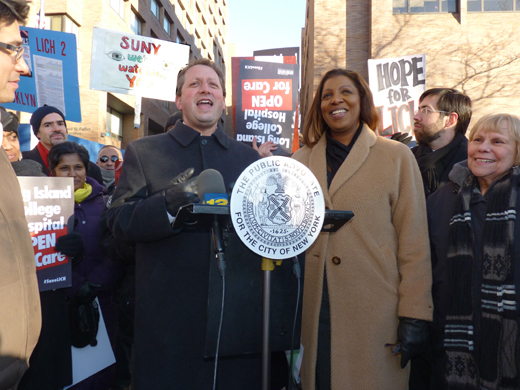Brooklyn officials denounce SUNY’s revamp of LICH RFP
Levin: ‘SUNY decided to go rogue’

Elected officials in Brooklyn joined community groups and unions in denouncing SUNY’s announcement late Tuesday that it is “reopening” its Request for Proposals (RFP) to sell Long Island College Hospital (LICH) — but only to those bidders who already participated in the initial round.
“First, SUNY tried to shut down LICH altogether. When we stopped that, SUNY then attempted to push through a flawed process. Throughout this process, SUNY has acted in bad faith— making deals behind closed doors, violating good-government rules, and keeping the community in the dark as it seeks to rid itself of LICH,” Public Advocate Letitia James said at a press conference on Henry Street in Cobble Hill on Wednesday. “We’re sick and tired of it. Open process? Open to no one.”
SUNY said that those who previously put in a bid would have until February 3 to tweak their offers.
